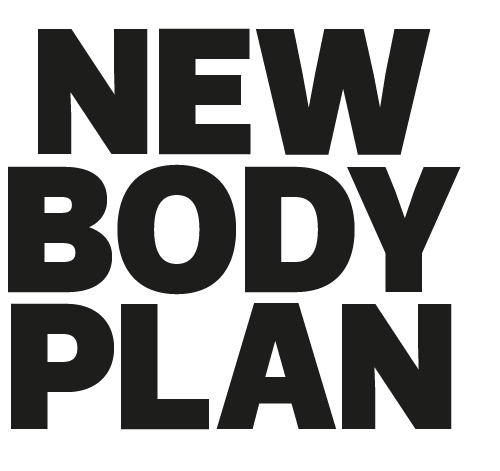Lose weight, be positive and feel happier with these smart and simple habit changes
Want to feel happier? We all do. And the good news is you can start to feel happier today with some quick and easy lifestyle habit tweaks.
You see, almost all our behaviours take the form of a habit. Some of these regular routines are great. Brushing your teeth is important for avoiding a toothless old age. Making your partner a cup of tea first thing demonstrates appreciation and deepens your bond.
But other habits are not so beneficial. Hitting the snooze button every morning means you always end up rushing and arrive at work already stressed. (Here’s what to do if that’s you and you’d love to sleep deeper for longer every night.)
Feel happier habits made easy!
So we all have lots of habits that enhance our lives or those that impede our lives. But the good news is there’s always the opportunity to break unhelpful habits and create new, beneficial ones.
Find your perfect fat-loss plan!
Take the New Body quiz!
Establishing good habits reduces the number of decisions you have to make each day, freeing up brainpower for more important tasks. It also reduces the amount of firefighting you have to do fixing problems created by bad habits.
Research shows there are some habits that bring a wealth of physical and mental health benefits, and here are some of the best to put into practice right away.
1 Move your body more to feel happier
The physical and mental benefits of exercise are so numerous and well established that if exercise were a pill, we’d all be trying to stockpile it. As well as helping you lose body fat and increase lean body mass, exercise also protects the long-term health of the brain in two main ways.
Aerobic activity, such as running, swimming and cycling, increases blood flow to the brain. That brings with it oxygen and nutrients that the brain needs to stay in good working order. Resistance training, such as bodyweight exercises or dumbbell exercises, increases the production of compounds in the brain that protect nerve cells from dying, and promotes the growth of new neural connections. A better-connected brain is faster and more efficient and this extra connectivity, if continued over a long period of time, can protect against the loss of brain volume as we age.
But physical activity isn’t only running or doing press-ups: the habit of simply moving more often is linked to longevity and better brain function as we age. If you can start getting into the habit of going for a 20- or 30-minute walk every lunchtime you will make significant strides to improve your health and well-being.
2 Eat more veg to feel happier
From a nutrition perspective eating more vegetables is probably the single most important new habit you can forge to enhance your health. Veggies are packed with vitamins, minerals, fibre and other compounds such as phytochemicals that have numerous health-boosting qualities.
Ideally you should be eating a fist-sized portion of vegetables at every meal if you’re a woman, and two if you’re a man, and this should be the absolute minimum. It’s also important to eat a wide range of veggies, because each type and colour contains different combinations of essential nutrients. If you don’t like certain vegetables, experiment with different cooking methods or adding different spices or oils to make them delicious.
To find your perfect transformation plan, take the New Body quiz!
Take the New Body quiz!
3 Drink more water to feel happier
Staying hydrated has repeatedly been shown to improve physical and mental well-being and performance. Research has found people encouraged to drink more water felt less fatigued, had better focus and improved mood, and felt less tired – all factors that promote a sense of well-being. Aim for around two litres a day, but more if you exercise or if it’s hot and humid, and carry a water bottle around with you so it’s easy to keep drinking all day long.
4 Be more mindful to feel happier
Getting into the habit of focusing your attention on what’s happening in the here and now can lower stress levels, stop you feeling overwhelmed, and improve productivity. A regular mindfulness practice can also reduce inflammation, induce calm and even protect brain health. If you’re new to the practice of mindfulness, start with just being more mindful at mealtimes.
5 Be more grateful to feel happier
It is so easy to get into the habit of complaining about the things that we don’t have or that have gone wrong. It is important to face certain realities, but we need to be careful not to overemphasise the negatives to the detriment of all the good things we h nave going on. Simply writing down one thing you’re grateful for each day is a genuinely powerful tool for rebalancing your attention and focusing more on the good things in life.
6 Work on relationships to feel happier
It isn’t being dramatic to say loneliness kills. Despite a dizzying array of “social” media platforms many people find they are more isolated and disconnected than ever. Loneliness increases your risk of heart attack, depression and cognitive decline.
When people look back on their lives in old age one of the biggest regrets is neglecting relationships, and research shows the people who live longest have cultivated close relationships and are part of stable communities.
Get into the habit of prioritising your relationships. Even if you have to schedule phone calls or make arrangements weeks in advance, it’s worth the effort because in-person contact with people who matter to you pays huge dividends to your well-being.
7 Open up more to feel happier
There are serious physiological consequences to bottling up your feelings. Not only does it increase dissatisfaction and unhappiness, but holding on to negative emotions can increase inflammation in the body, which is associated with a number of health risks from depression to heart disease.
Get into the habit of saying how you feel as soon as you can – you’ll be protecting your health, as well as helping prevent the resentment and misunderstandings that harm relationships. If you find it difficult to say how you feel or are in the habit of putting on a brave face, talking to an impartial professional can give you the skills and confidence to be more open.
8 Be more organised to feel happier
Are you always running for the train or ignoring bills until they’re sent in red ink? Does the word “deadline” conjure up images of caffeine-fuelled all-nighters?
If that sounds like you, you need to get more organised. Doing so will reduce your everyday stress levels to make becoming healthier and happier far easier. It’s as simple as putting out your work clothes the night before, or planning and cooking your meals in advance.
9 Get a new hobby to feel happier
For many of us work is something we have to do to enjoy the rest of our lives. Maybe one day you could see whether your personal and professional interests could overlap, but for now it’s vital to remember that your job is not your identity, nor is it the extent of your capabilities.
Explore that hobby that’s always interested you. Learn to dance, play an instrument, learn a language, try something you think you’ll love. Don’t have enough time? Watch 30 minutes less TV a night and now you do! Your new hobby will give you far more satisfaction and ultimately lead to greater happiness.
10 Get more sleep to feel happier
Skimping on sleep will make you tired, unproductive, depressed, fat and sick – and it’ll shorten your life. Developing better bedtime and sleep habits will make a phenomenal difference to your life.
Embrace our feel happier habits!
Habit change is hard, even when we know it will do us the power of good in the long run. And it takes time and effort to break established routines and rewire your brain to the better way of doing things. Start small, breaking the beneficial habit down into smaller steps and take just one step at a time. And give yourself a break – it’s not easy but it will be worth it!
To find your perfect transformation plan, take the New Body quiz!
Take the New Body quiz!
7 ways to eat for fat loss and get a leaner and stronger body

